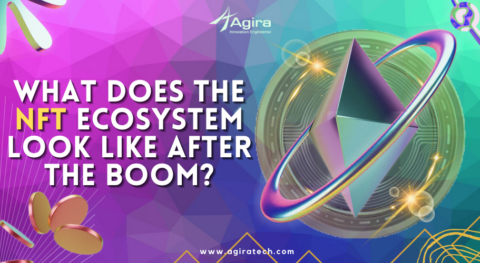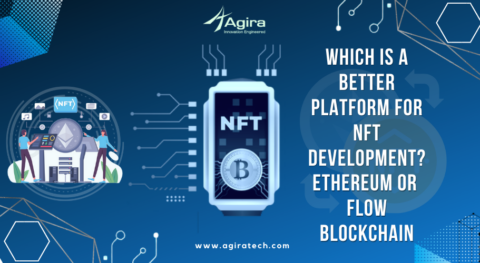Table of Contents
In recent years ‘Blockchain’ is the buzzword for technology and we have continuously discussed about its potentials and it’s use cases in our previous blogs. Also, one of our blog confessed the 3 types of Blockchain and we have elaborated each with it’s sample usecases, but this time, we’re about to find appropriate blockchain that suits our business.
- Permissionless Blockchain
- Public Permissioned Blockchain
- Private Permissioned Blockchain
From the track, It’s usually a daunting task for an organization to choose the right type of blockchain to adapt the new technologies. This blog will help the organizations to decide on the type of blockchain that fits for them.
Related: How Businesses Can Use Blockchain To Boost Revenue?
Similarities between Public Blockchain & Private Blockchain
1) Distributed ledger concept is universal (Peer to Peer network)
2) Digitally signed transactions are only allowed
3) The replicas in sync through a protocol referred to as consensus
4) “Immutability of the ledger.” is guaranteed
Centralized Database Vs Blockchain
Typically organizations create transactions, and they are stored in a centralized database server which might reside in multiple locations. There will be writers, who possess write access to the database and observers who will have only read access.
Contrary to this, blockchain is decentralized in nature, wherein the role of writer is to accumulate the blocks and append it to the blockchain. The writers are responsible for growing the blockchain and acts as a participant for consensus mechanism. The role of the reader is to participate in the transaction creation process, reading or auditing the blockchain.
Key Parameters For Blockchain Consideration
Before concluding a Blockchain adoption, an organization need to evaluate following parameters.
TTP refers to the Trusted Third Party that helps in achieving consensus. The parameters indicated in the flowchart helps in identifying whether blockchain is needed for the organizations or not. Next, we shall discuss on how these parameters can be compared with a use case.

Related: Entrepreneurs: Here Are The Potential Use Cases Of Blockchain Explained Just For You
Supply Chain Management (SCM)
SCM involves multiple participants for completing its entire business process cycle. For example, starting from the procurement of raw materials, manufacturing the end product and till shipping it to the end consumer, several parties are involved. Each party process different types of transactions such as raising purchase orders, goods receipts, and sales invoices and so on. Hence knowing the transition of the transactions remains crucial. Each type of transactions are owned by a concerned authority, ie. A sales person cannot approve a purchase order for raw materials issued by a procurement manager. So, SCM definitely requires multiple writers. Also, the approval cannot be done instantly as the transaction volume is huge and TTP might not be available all time.
In SCM, all writers are known as the transactions can only be processed by designated authorities. Trust remains to be a crucial factor, as SCM involves multiple interactions between physical world and the digital world.
For example,
If the goods receipt transaction has to be done by the warehouse keeper using a barcode scanner, and there is the possibility of the data to be compromised. Therefore all the parties cannot be trusted. As indicated earlier, each transaction is to be approved by a concerned authority, and hence public verification is not required in case of SCM. So the ideal choice for an organization in SCM industry is to opt for private permissioned blockchain. There as several companies like Walmart, Skuchain, etc. which are claiming to provide a blockchain based solution for the SCM industry.
Fraud detection and prevention is one of the biggest security threats for banks and the bank data which are stored in centralized databases are constantly under attack. Since Blockchain is being a distributed database, where the individual transactions and data are stored in individual blocks in chronological order. So it would become extremely difficult for outsiders to gain access to the data. Hence this would help to eliminate some of the frauds in the banking industry. On this case, Private blockhain is an effective and an ideal tool for banking sector. Moreover most of the entrepreneurs believes Private Blockchain could provide possible solutions to all the financial enterprises that are facing problems today.
Public Blockchain
Consortium / Blockchain
Similarly, we can evaluate organizations in any industry as analyzed above to arrive at a conclusion. Hence the existing business model of an organization remains a crucial factor in determining whether blockchain is required or not.
Besides exploring, our pool of blockchain experts never refuse to share their knowledge with us. You could get more blogs about Blockchain and latest technologies in coming days. Get tuned with us. You could also share your valuable ideas & thoughts with us in the comment section.
For more info reach us at info@agiratech.com










